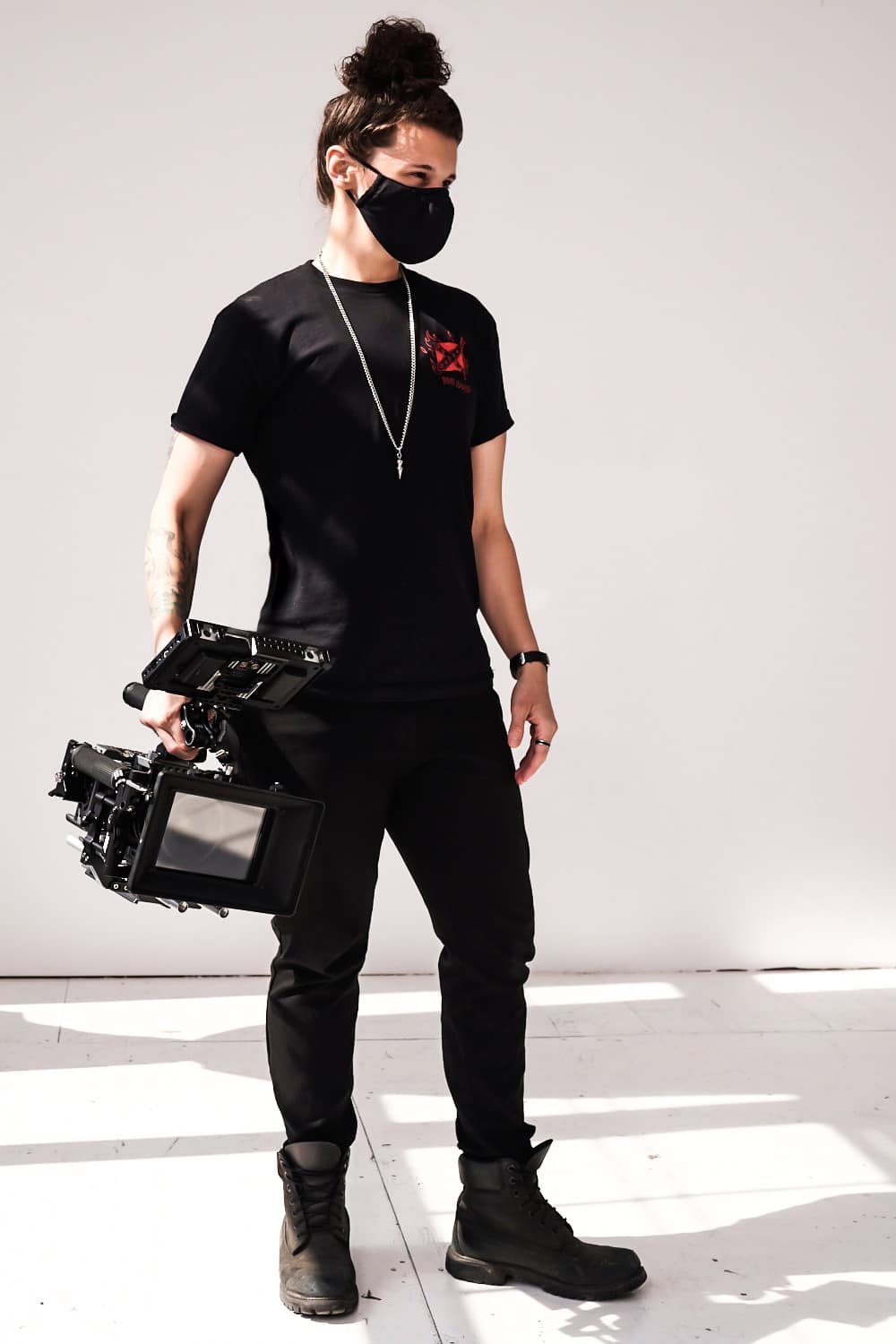
Aly Spengler (she/they) is a Philadelphia-based Director of Photography, MoVI Pro Operator, and Post-Production Editor. They have led full-scale departments and used their skills, technical and social, to overcome enormous obstacles with grace. Having taken an open stance on supporting their LGBTQ community, Aly is able to speak confidently when it comes to creating an open and safe environment for folks of manifold backgrounds within our industry. This week on Project Forte, we recognize that maturity comes from taking responsibility for your own growth and education, but without an experience or exposure to diversity we can remain unaware of our own ignorance. In these cases, allies can help breach the expanse that separates us. They navigate difficult conversations and usher our peers into a more respectful and inclusive brotherhood. We are, after all, in Philadelphia, the City of Brotherly Love! Read on to learn how speaking up can eventually dissolve animosity, creating empathy and community by illuminating areas of naiveté amongst us. It is a crucial act, bravely but simply done, which will break down the walls that keep us from working together.
Written and Edited by Kate Feher
_____________________________________________________________________________________________________________________
Kris Mendoza: Can you tell us a little bit about who you are and what you do? How did you get started in the industry?
Aly Spengler: My name is Aly Spengler. I began my career shooting behind the scenes fashion editorial films and small-scale documentaries in 2008 with one of my childhood friends. Since then, I’ve grown and expanded my expertise in the various areas of production, but I’ve always called the camera department my home. I’ve participated across a broad spectrum of projects – I’ve been invited to travel the world to film radical movements and document humanitarian efforts, shoot national campaigns and commercials, hung backward off the back of motorcycles with a Mōvi strapped to my chest for large motorcycle and automotive brands, collaborated with non-profits and independent artists, and more recently have been trying to break into the larger film sector.
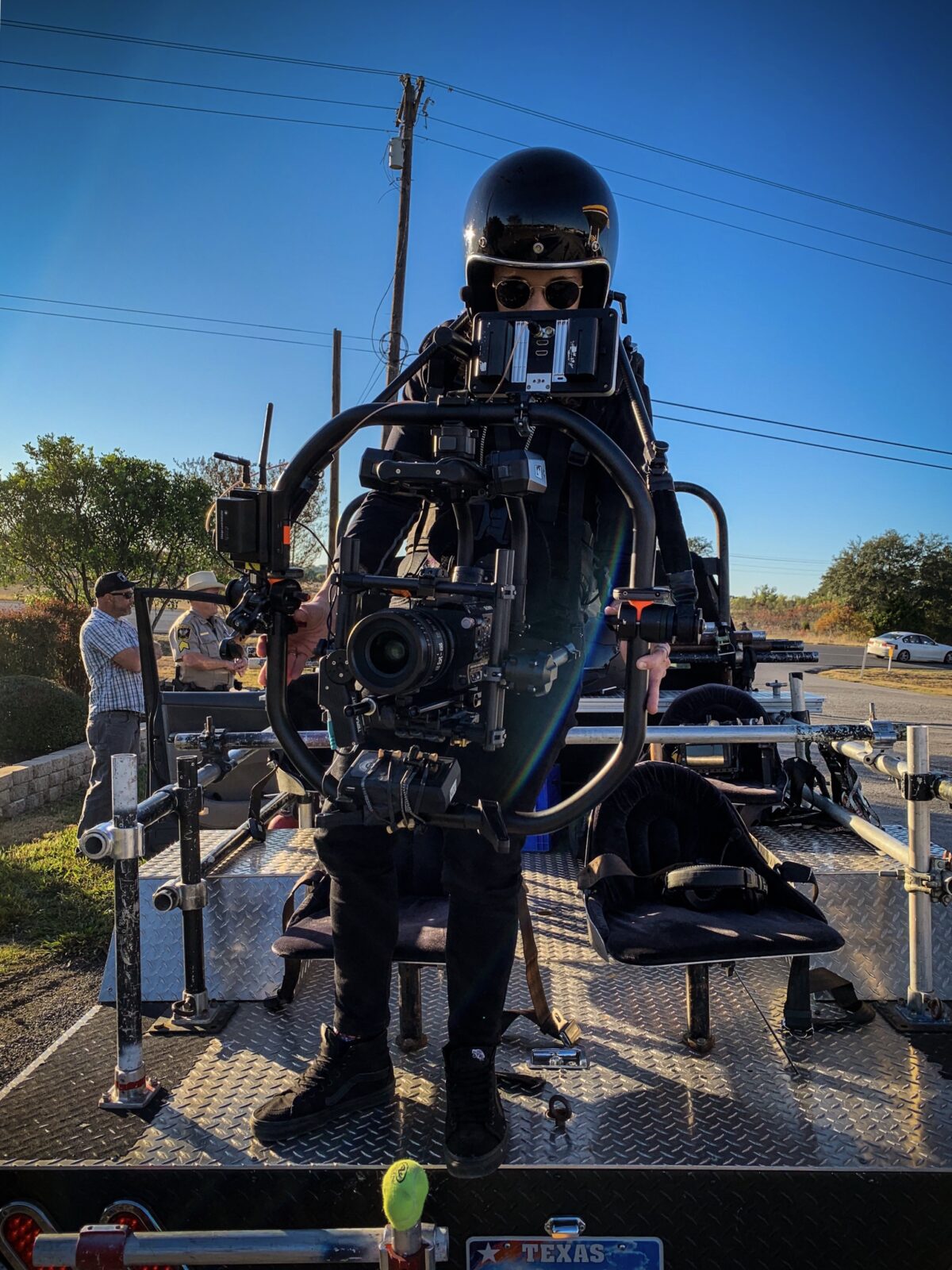
I am a non-binary LGBTQ filmmaker, and I aim to bring other LGBTQ, BIPOC, and historically marginalized filmmakers, creatives, and individuals to the forefront any way I can, whether it be on set and throughout production, or in front of the camera telling their story.
Kris Mendoza: This is exactly what Project Forte is about, I knew you would be a great fit!! What pushed you to be an advocate for LGBTQ and BIPOC filmmakers beyond supporting your own community? Was there something that happened that spurred you to take a stand?
Aly Spengler: It’s always been at my roots, a sort of yearning and heartache for wanting more, wanting to fit in while also not. Queer people don’t grow up as ourselves, we grow up playing a version of ourselves that sacrifices authenticity to minimize humiliation and prejudice. The massive task of our adult lives is to unpick which parts of ourselves are truly us and which parts we’ve created to protect us. It’s massive and existential and difficult. But I’m convinced that being confronted with the need for profound self-discovery so explicitly, and often early in life, is a gift in disguise. We come out the other end wiser and truer to ourselves. Some cis/het people never get there.
I grew up in a very rural, conservative town in central PA, home to about 7,000 people. Everyone knew everyone’s business. I was closeted, and then I was outed. I went through a really difficult process of trying to hide myself while also trying to understand who I was. My two dearest friends growing up were two gay men. Needless to say we all shared similar experiences of verbal and physical bigotry from our peers. Being a direct target to hateful individuals and watching friends of mine be ridiculed for being themselves fueled a fire in me that burns today, and continues in the same way for any other group or individual who is treated like they are the lesser.
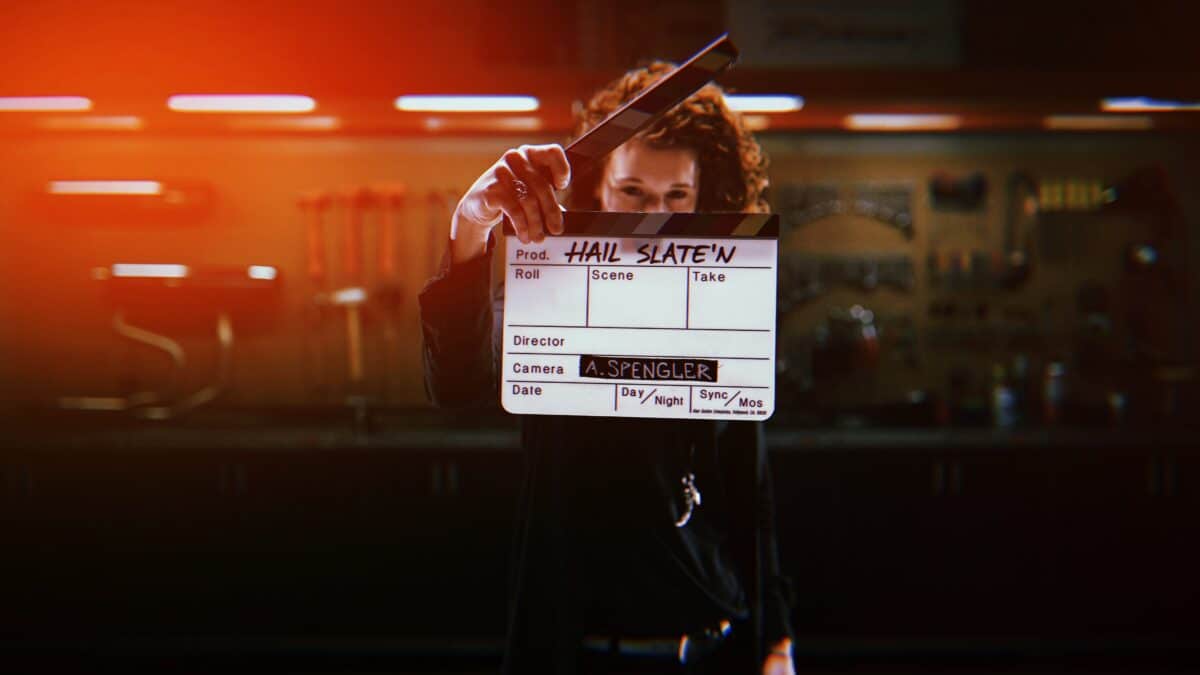
After moving away to pursue a career in filmmaking, developing my career and myself at the same time was the focus of my life. But it can definitely be a double-edged sword in terms of speaking up against injustice or against people who are outwardly bigoted and or racist. I’ve found myself coming toe to toe with some of these individuals, both on and off set, and although it’s uncomfortable, I think these conversations are necessary.
Kris Mendoza: Can you expand on the double-edged sword metaphor? Is it in balancing how much to speak out and how much to blend in at the same time?
Aly Spengler: I’m honestly tired of trying to blend in. I mean, it’s definitely a delicate dance. No one wants to start a ripple that’ll get them fired or X’d out of a future gig because someone thinks they “speak their mind too much” but also, would you even want to work with individuals who felt that way about you, to begin with? That answer is simple, and the answer is no.
I only recently came out as non-binary, so for the longest time I was just “the only female on set.” Navigating that alone had it’s challenges. Prior to 2017 I was strictly a freelancer. In fall of that year I started working a 9-5 corporate job as an in-house DP for a local Philly moto giant. There, I worked with predominately straight, white, cis-male individuals, and in my department specifically, many narrow-minded and outwardly biggoted and vocal personalities. Most, I’m sure, would call their actions cute and harmless, but I tote that up to them not being a part of the community they were making caricatures out of. It’s plain ignorance to a group of people you know nothing nor care to learn anything about. It just became overwhelmingly exhausting and difficult working with this certain group who would behave outwardly sexist, bigoted, and racist through seamingly off-hand comments. And like many companies, these individuals were always protected from being held accountable. Which can be the most damaging.
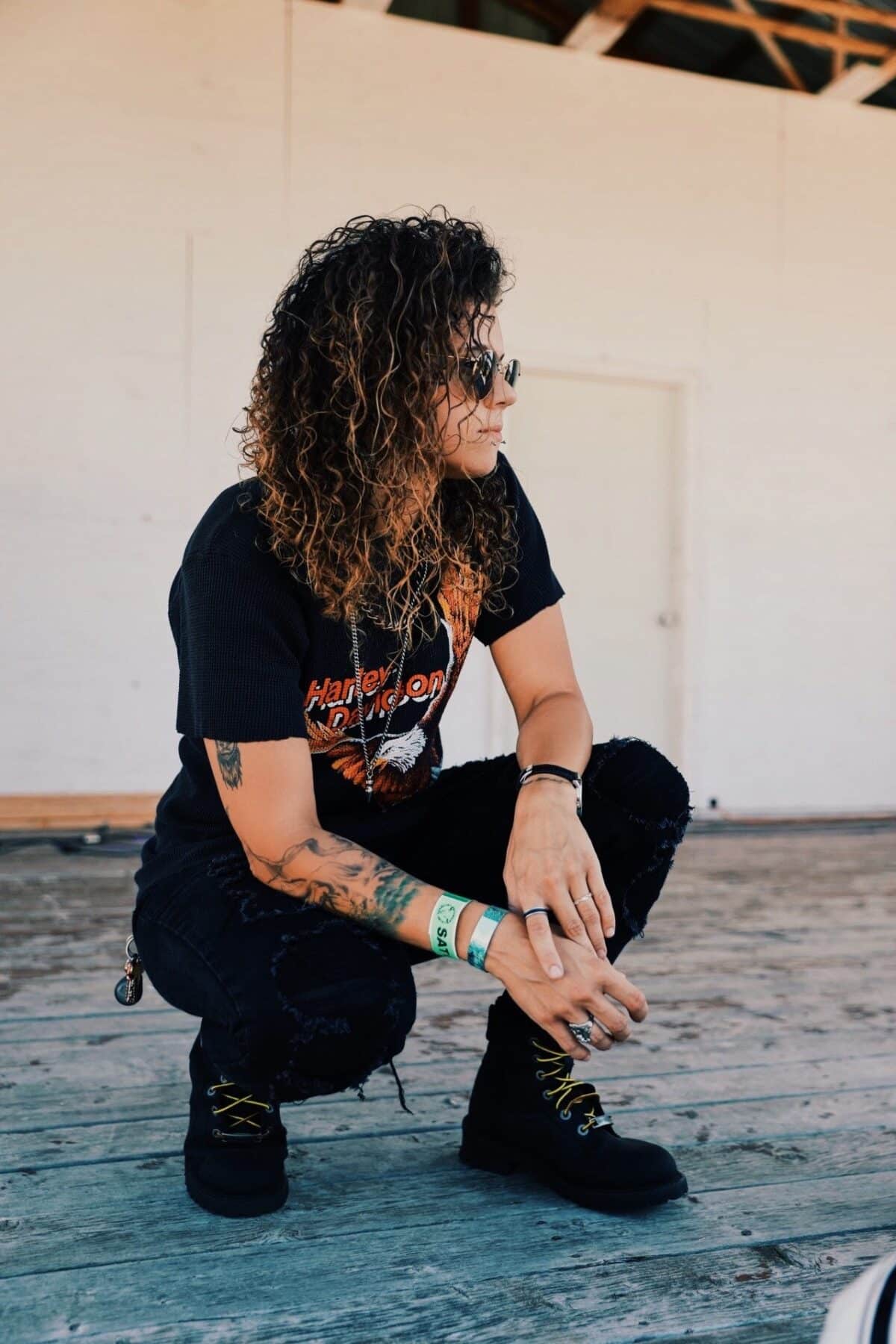
I eventually found myself pretending to joke back with them as a means to make them question their initial statements, which forced them to continue the conversation. It clearly made them uncomfortable once they realized what they were saying. Never once did I feel comfortable coming out as non-binary in that place of employment. Suggesting to a host to try and phrase a sentence in our scripts using “they” instead of “he” produced eye-rolls and sighs. Like I was talking to a 30 or 40-year-old child.
It’s a delicate dance, trying to talk to individuals operating from a place of ignorance like that. You honestly want to get through to them, but it doesn’t always work. Now, I just don’t feel a need to put up with it anymore. And I don’t put up with it when I see it happening to other people in similar situations either. It’s something I’m deeply passionate about and it can’t be separate from the work that I create.
Kris Mendoza: So there are boldly racist, sexist, and bigoted comments, but then also, these microaggressions which, as you said, people sometimes just giggle at and let it pass thinking it’s harmless. That’s another double-edged sword because defending against a microaggression can make you look like you’re blowing up about a small thing. You’re damned if you don’t say something because it makes that seem ok to the team, and damned if you do say something because you get labelled as someone who’s hard to work with, right?
Aly Spengler: Exactly! And I’ve gotten that before, but it’s more important to remember: microaggressions are never small to the receiver. Sometimes the person making that comment has no idea what they are saying and how it affects other people long-term. Mental f***ing trauma is real. I would be in our production studio predominantly by myself, every day, for almost three years – my own AC, G&E, audio tech, etc. Then my hosts would roll into the space and just outwardly sling microaggressions like a performance because it “riled” each other up and it got laughs among them, even while the camera rolled.. and that was just really difficult to-
Kris Mendoza: Stomach.
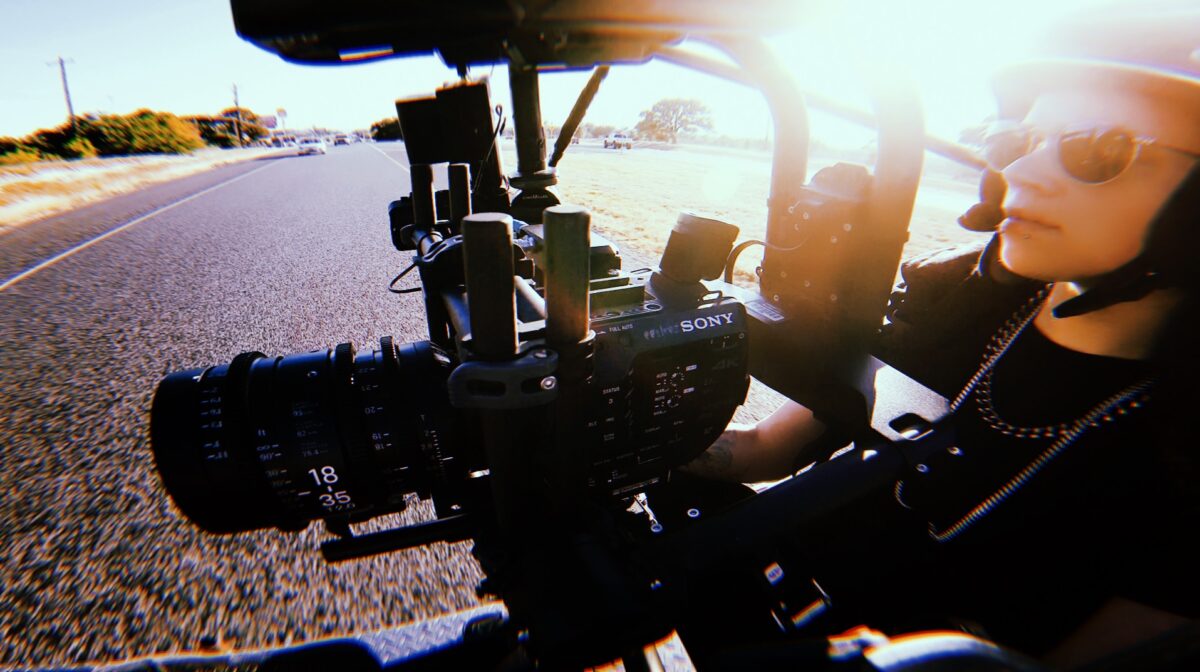
Aly Spengler: … stay silent. And yeah, stomach. And that right there was a difficult dance because I was doing something I loved, I had a weighted position, and I was thriving. I had a department of almost 20 people, we had five full-time editors, multiple producers, a handful of hosts, etc, and only one shooter. I was the camera department. We were creating so much, but with the weight of-
Kris Mendoza: Verbal abuse.
Aly Spengler: … it was a lot. I eventually spoke out to HR and sought guidance on what was being said. I let them know what was happening and that some people were making puppets out of these marginalized demographics and that I was a part of this community so I was finding it very difficult to be around those people. I was let go two weeks after going to HR. I had gone in the hope that they would help me talk to these individuals and let them know that this wasn’t okay. I had just gone through my yearly review a few months prior to visiting HR and that had gone very well. I had never been put on any type of probationary period about my performance in my role. They also did not disclose with me their reason for letting me go. Enter, “the queer in a corporate setting” experience.
Kris Mendoza: That’s really a shame. It’s hard to say if they cited your visit to HR or told you why you were let go, but obviously, that sounds highly illegal.
Aly Spengler: Being in that studio, with no windows and only one door.. people came in, made their little comments, and of course, HR never heard about it. It was a place that addressed me as, this female.. non-binary.. this queer… this non-straight individual and by stating the problem, I was seen as the problem. I feel like it put an X on my back and they basically found an easy way to eliminate the-
Kris Mendoza: Friction.
Aly Spengler: Yeah. So, that’s what I mean by a double-edged sword.
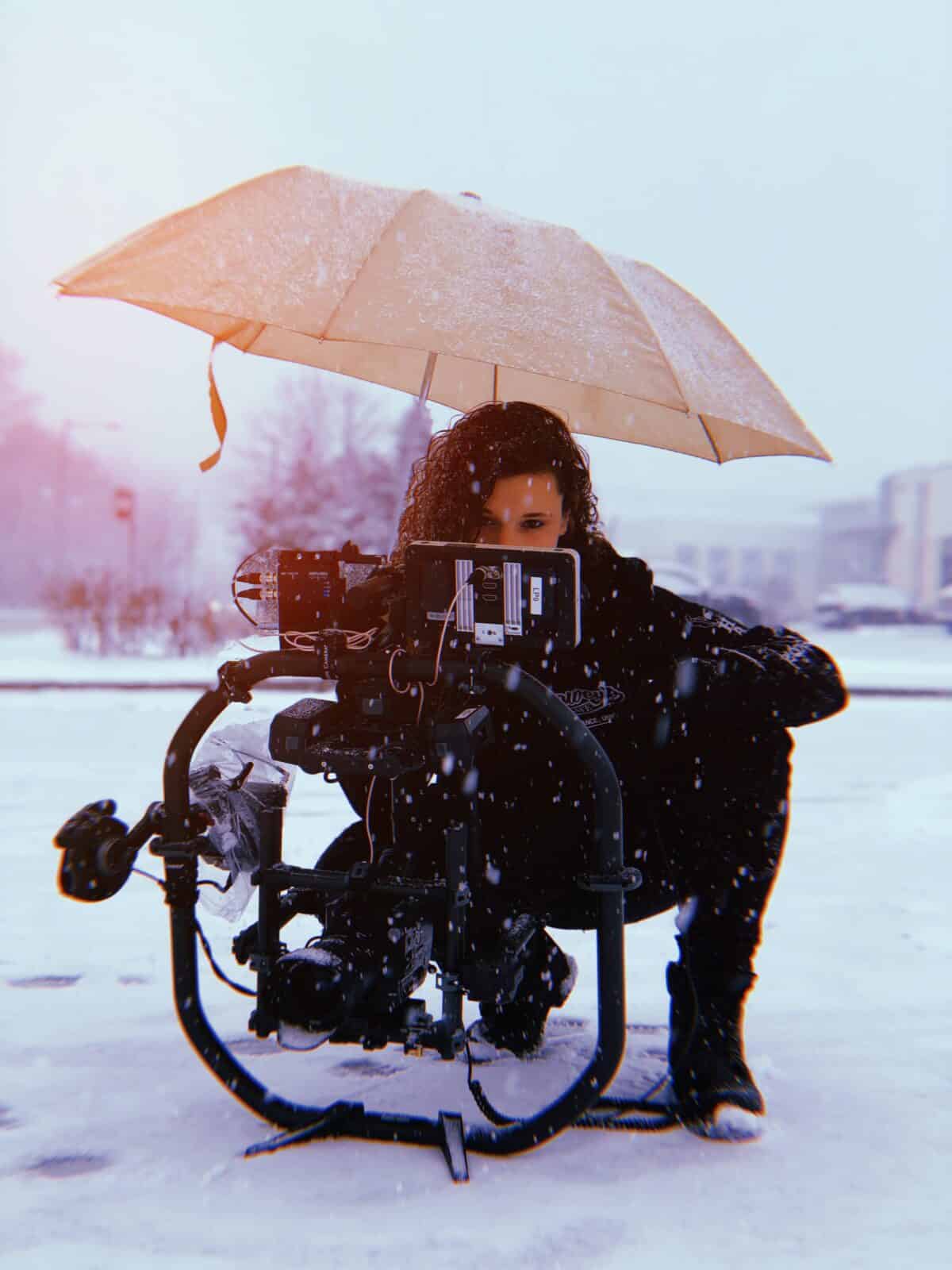
Kris Mendoza: It doesn’t sound like you were disrespectful in how you spoke up. It wasn’t like you barged into HR and yelled and complained. It sounds like you composed yourself and figured out a way to report it.
Aly Spengler: Yeah, it was a pretty emotionally draining and vulnerable one-on-one with her. I feel like that’s something a lot of people still have to put up with, whether you’re in a corporate setting or not. Whether you’re a female, a person of color, or any historically marginalized individuals, it’s sadly always something that you carry and I question if my straight, white male counterparts ever feel it.
Kris Mendoza: Sadly, I think that’s the privilege they enjoy, having never been made to feel like the minority in the room in any way, shape, or form, right? It will take initiative and time for the general establishment to be more open and accepting.
Project Forte is all about allyship and it’s not just necessarily about a friend speaking up, but how important is it for victims to share. Maybe it is a straight white male that hears it and is not okay and says something, how powerful is that? How important is it to have other people stick up for you on these instances?
Aly Spengler: It’s incredibly important because it will make that individual, who’s made to feel like they’re just complaining, feel validated. It’s sad that it’s been constant decades of yearning to simply feel accepted by your peers, to feel like you need permission to be.
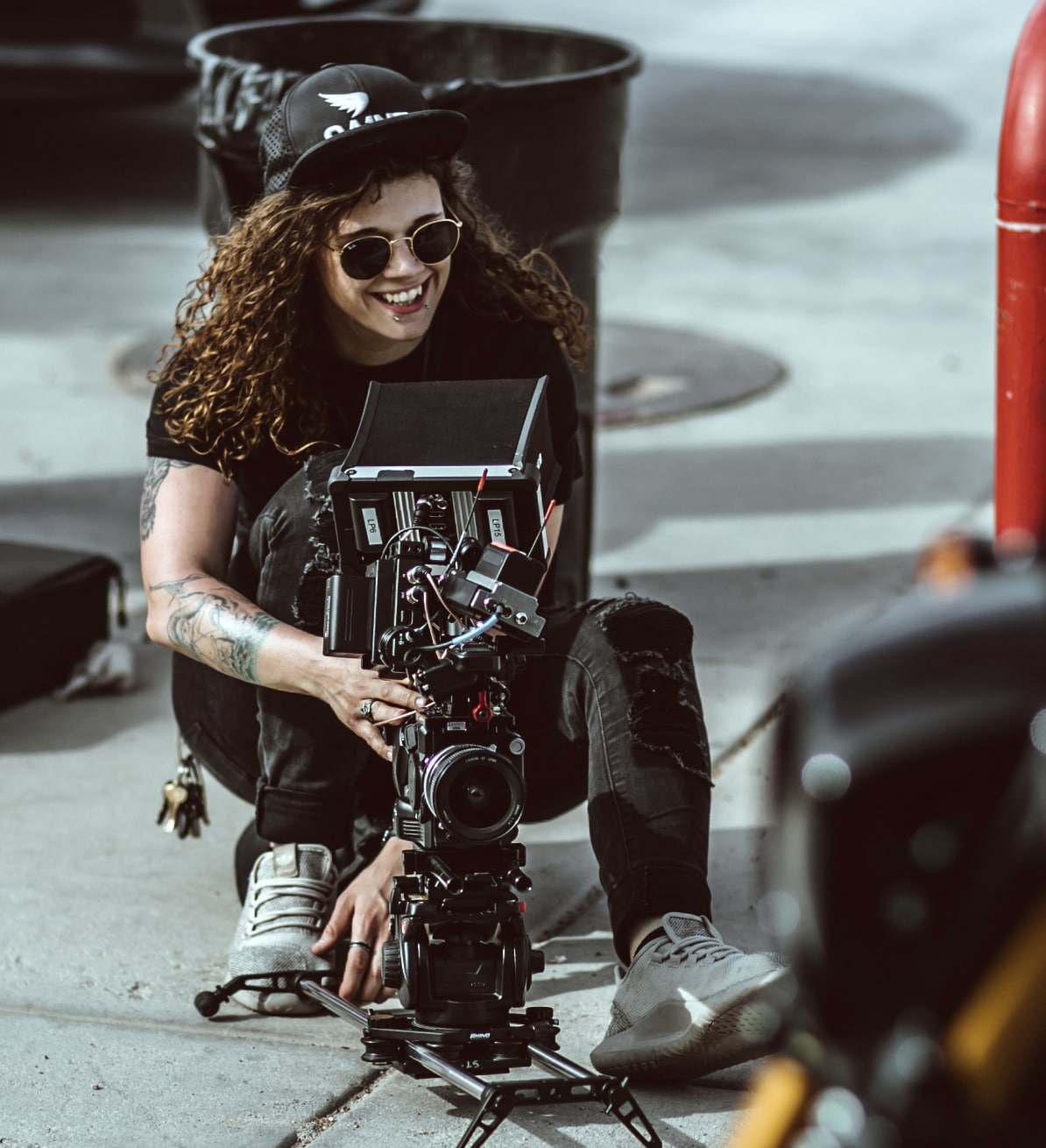
Kris Mendoza: I spoke to another Director of Photography who is a part of the LGBTQ community and wears it loud and proud as part of her cause. I expected her to say she experiences a lot of discrimination but was actually very much surprised to hear that her experience was in favor of the film community, noting that it is more diverse and accepting than corporate industries. From your experience, what is it like to navigate as non-binary and wear this cause on your sleeve and advocate within this industry?
Aly Spengler: Don’t get me wrong, this was one huge, long experience with one specific company. I love the film world because it can be a super diverse group of people and harbors many creatives and artists, who tend to be really open-minded people. I have noticed, however, that some departments repeatedly have the same demographics of people being hired in them, like the camera department, or G&E for example… have a lot of white cis-men. For some reason I still mostly see women being hired as makeup artists and stylists when I happen to know plenty of women, non-binary people, and trans individuals who are exceptionally talented in these other departments. As I’ve mentioned, I’ve only recently come out as non-binary but for years I identified strictly as a gay woman. Being nonbinary doesn’t exclude your very real gay or lesbian experience. I feel like, on certain sets, men have let their hair down around me and have gotten really comfortable with their vernacular – basically what I’m getting at is I’ve had men say really sexually explicit things about other women to me, because well, “we’re on the same team, right?”.
I had a producer quote to me, “Wow. It’s so cool to have a lesbian on set because it’s like having one of the boys.” This was my first time working with him. On a travel shoot.
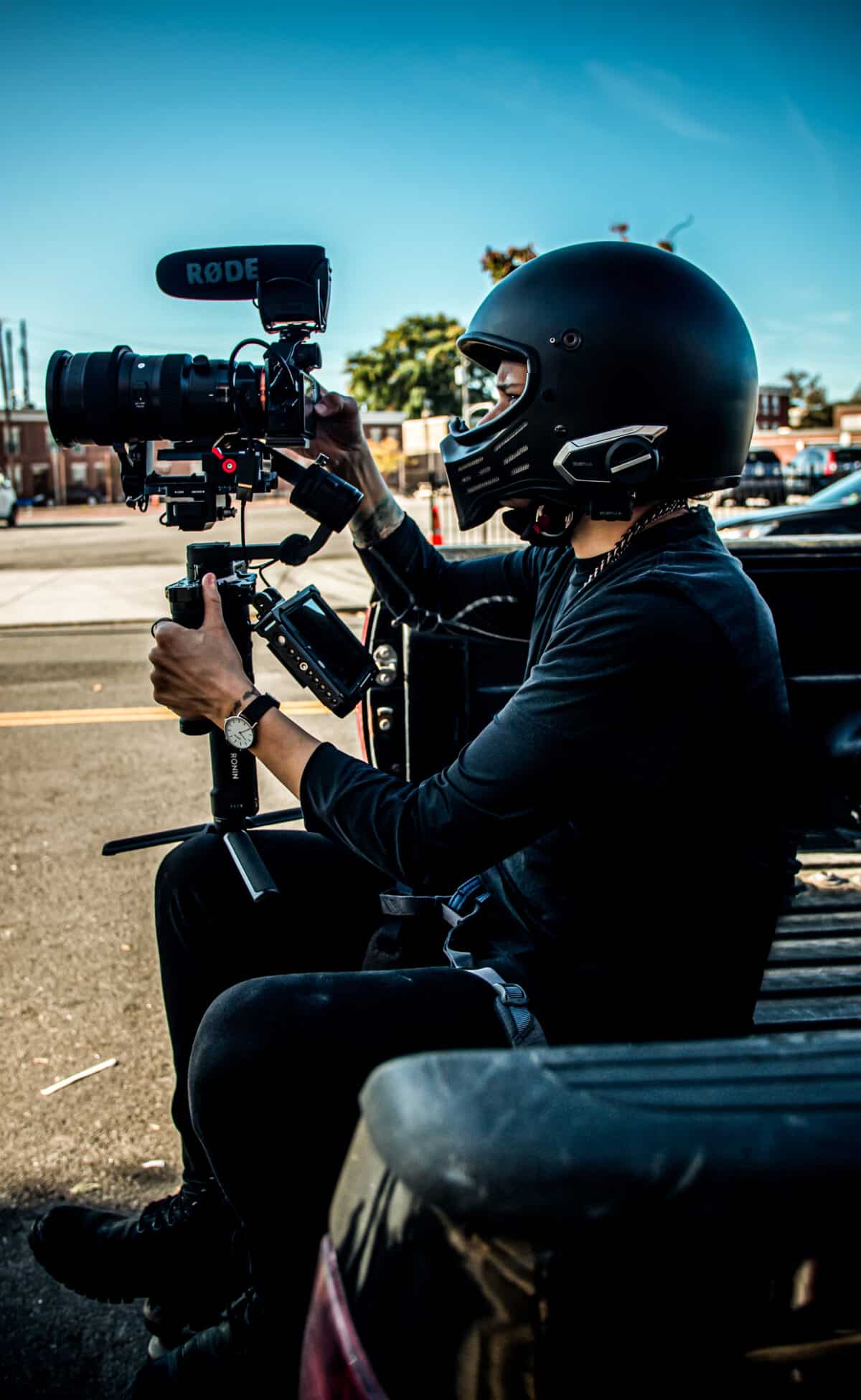
Kris Mendoza: I would assume that as an off-colored compliment, a clumsy attempt to find common ground, right? He’s trying to build camaraderie with you, but it has the exact opposite and, incidentally, negative effect, of making you feel even more uncomfortable when maybe he was trying to make it seem like, “We can be cool. We’ve got this thing in common.” And I think it seems rooted in ignorance at the end of the day. People are sometimes taught that men and women are so different they can’t relate. I don’t think they mean to create exclusion, but maybe they’re trying to preempt it – though it’s coming from a lack of understanding, and not necessarily animosity. For him, this is cool and novel because he just hasn’t had that much exposure to it and it’s almost a neutral level of ignorance. In terms of that, how often do you find yourself having to educate people?
Aly Spengler: It’s not my job to educate people or be their encyclopedia but I often find myself having to stop my job of creating in order to do that, to address that ignorance. My problem is when people don’t want to educate themselves by absorbing or staying open on their own. It’s when you introduce these new ideas like, “Hey, that person goes by they/them. You should use those pronouns.” And then they roll their eyes and sigh. Those are the people I will go a little more toe-to-toe with because it’s just pure stubbornness.
Kris Mendoza: Absolutely. As the head of a department or a leader on set with other folks under you, do you constantly have to gauge the team’s sense of credibility or validity to what you’re saying and your position because of your gender or your age? Do you ever find yourself having to prove yourself more when you’re in a leadership position?
Aly Spengler: At times, yes. Anticipating having to prove myself and my worthiness within my department position is more of a mental hurdle than anything, but once I’m actually working and leading, I’m thriving, and I feel confident. I feel like I was brought there for a reason, so I try to hope and trust that it wasn’t just to check a box or to meet a quota, but that I was brought on because the team was excited about what I can contribute. I decide to trust that we have like-minded goals and views on what we want to create together. At its core, that’s still one of the biggest things that draw me to this industry, when people who you meet, may butt heads with, or find you are vastly different from, come together to make something. We’re all there for the same reason because we love this work, the creativity, and the camaraderie. I live for and love crew camaraderie.
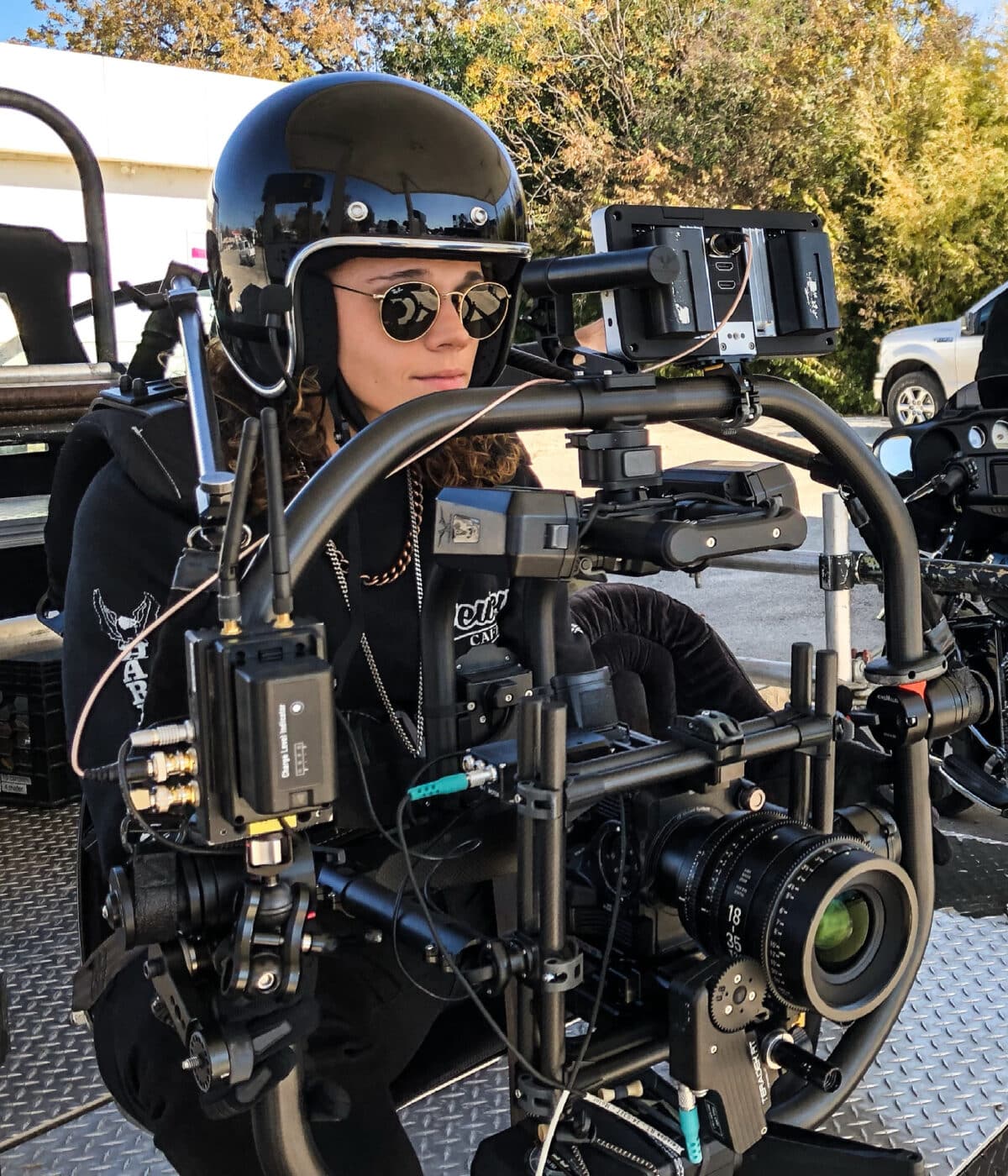
Kris Mendoza: Have you been able to work on a project with LGBTQ subject matter and have the right crew and people telling all these authentic stories in front of and behind the camera? Have you ever been able to bring your love of filmmaking and advocacy for the community together in a project?
Aly Spengler: I’ve never truly been able to bring it all together fully like that – where crew, talent, and content are in line authentically. Damn, wouldn’t that be amazing? I’ve yet to have the opportunity to bring it full circle.
Kris Mendoza: What needs to happen for this acceptance of non-binary people, LGBTQ community, not just on set, but in general? You might look at the film or television community as a microcosm of the larger society, but obviously these microaggressions, these scenarios are happening elsewhere and almost more aggressively outside of our industry now. So at least in terms of the language of film and being on set, what needs to happen to have more inclusivity and diversity on set?
Aly Spengler: I think it all comes back to the hiring process, and then truly listening to the people who you hire and their experiences. The people who are in charge of creating these crews and bringing people together maybe need to expand their Rolodex a little bit. Don’t just always go to the white guy with the most expensive camera because you know he’s going to crush it, but if you also know that you have other people who can build this department who haven’t had the opportunity who are equally as talented, take a little more chance.
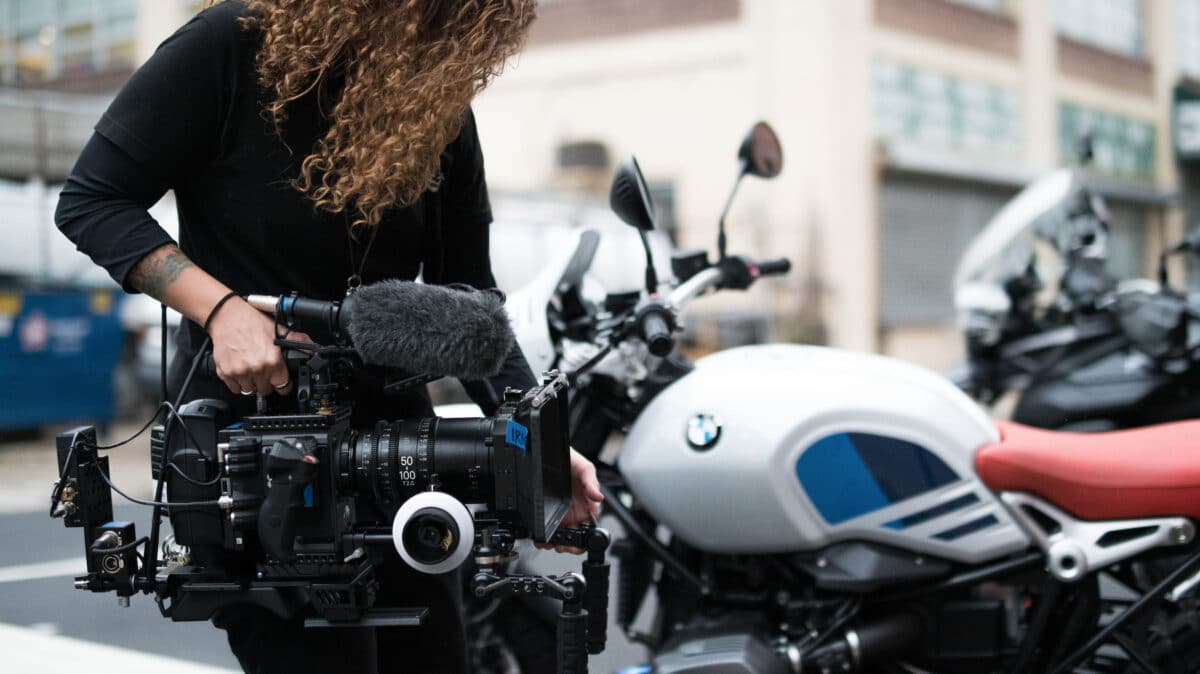
Hire us because you know that we’re talented and you feel confident in what we can contribute and don’t default back to the same choices because it feels safe. Don’t perpetuate the cycle.
Kris Mendoza: Take a risk and get out of your comfort zone.
Aly Spengler: Have difficult conversations. And more importantly, listen to other people. Accept their stories, learn from them, and grow together.
Kris Mendoza: I really want to thank you for your time. It’s been very, very insightful.
Aly Spengler: I really appreciate you reaching out to me, especially with us never having worked together. I don’t know if you’ve worked with a lot of the people that you’ve interviewed.
Kris Mendoza: Not necessarily, and this has been a great experience to meet people that we haven’t worked with yet. I hope to have the opportunity to work with you now that we’ve connected and follow you more closely. I hope your story is not just relatable to those that have gone through similar experiences, but for those that haven’t. It’s eye-opening for folks who want to become good allies, develop a little intentionality with hiring, and have insightful dialogue like this. That is crucial.
Aly Spengler: It’s only going to make people feel a little more welcome wherever they are.